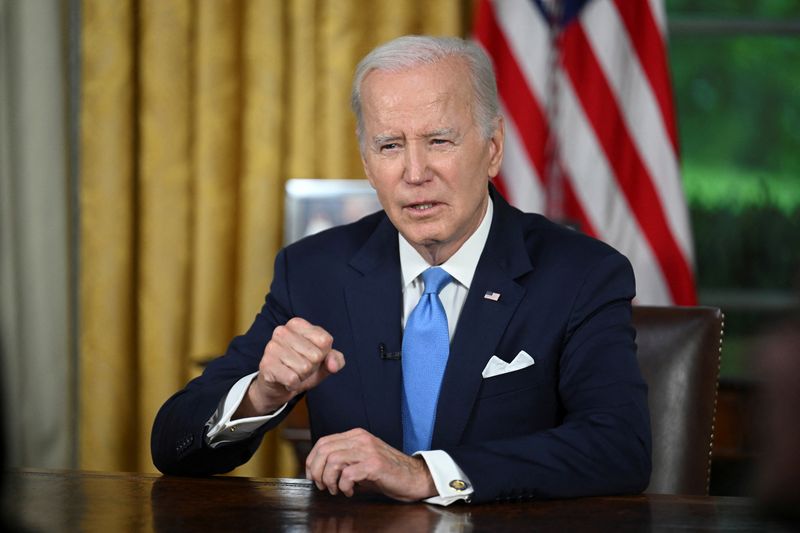By Trevor Hunnicutt
WASHINGTON (Reuters) - U.S. President Joe Biden asked a group of aides to explore "all legal and policy options" to prevent another debt limit standoff, the White House said on Thursday.
Last month, the Democratic president signed a bipartisan deal after excruciating negotiations with Republican House Speaker Kevin McCarthy that narrowly averted a crisis that threatened to send the United States into an unprecedented default and economic crisis.
A new group led by White House counsel Stuart Delery and National Economic Council Lael Brainard will examine, among other potential changes, actions Congress could take to make default risk "a thing of the past," according to the statement.
It was not immediately clear whether the panel, which includes no prominent Republican officials, would endorse doing away with the debt ceiling altogether or a novel legal theory Biden has toyed with that he may be able to ignore the statutory limits under 14th Amendment of the U.S. Constitution.
The Working Group would "examine potential actions that Congress could take to make the risk of default a thing of the past as well as Constitution-based and other approaches to avoiding a future crisis absent congressional action," the White House said in a statement.
The group includes Treasury Secretary Janet Yellen, Attorney General Merrick Garland, White House budget director Shalanda Young and Council of Economic Advisers chair Jared Bernstein.
That group will consult with four legal scholars, including Professor Emeritus Laurence Tribe of Harvard Law School, and Morgan Stanley (NYSE:MS) global chief economist Seth Carpenter, among others, at their first session, the White House said.

This year's bipartisan debt ceiling deal keeps fiscal 2024 spending flat at this year's levels, allowing a 1% increase for fiscal 2025. The non-partisan Congressional Budget Office estimates that the deal will cut deficits by about $1.5 trillion over a decade from its current-law baseline forecast.
The deal was approved by 149 House Republicans - a strong party majority - along with 165 Democrats. Forty-six Democrats, mostly progressives, spoke out against the deal, saying it enforced stringent work requirements on poor families who receive food assistance or monetary aid and others who face obstacles to employment.